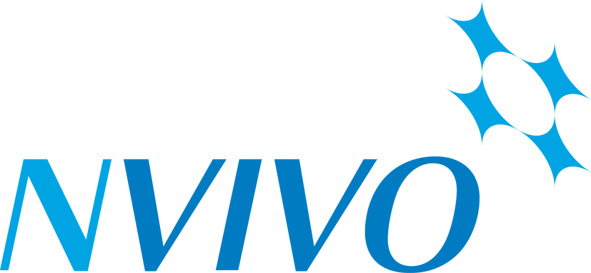This workshop is aimed at providing researchers with essential skills in using NVivo software. Those choosing to enrol in this course will be working on or about to embark on a research project. The course assumes no prior skills with using NVivo, however will cater for all levels of participants, from novice to advanced users.
This 2 day course is being held in ACSPRI's Melbourne office.

NVivo is computer software package produced by QSR International that supports qualitative and mixed methods research. It has been designed for researchers working with very rich text-based and/or multimedia information, (including interviews, open-ended survey responses, articles, social media and web content), where deep levels of analysis on small or large volumes of data are required.
This workshop is aimed at providing researchers with essential skills in using NVivo software. Those choosing to enrol in this course will be working on or about to embark on a research project. The course assumes no prior skills with using NVivo, however will cater for all levels of participants, from novice to advanced users.
Associate Professor Linda Sweet is academic nurse and midwife. She has 20 years of qualitative research experience and has been providing training and consultation in the use of QSR software including NVivo for over 16 years. Her research interests include sexual and reproductive health, midwifery practice, and education. Linda is an active supervisor for numerous research higher degree students and is also deputy editor of the international journal Women and Birth.
The workshop is aimed to provide researchers with essential skills in using NVivo software. Those choosing to enrol in this course will be working on or about to embark on a research project. They will be seeking to develop their knowledge and skills in computer assisted data management and analysis.
The course assumes no prior skills with using NVivo, however will cater for all levels of participants, from novice to advanced users. The focus is on developing the essentials skills from NVivo through hands-on experience. Sample data will be provided, however those with their own data will be accomodated and encouraged to advance their 'real' projects.
This training will be conducted using the Windows platform software only. NVivo for Mac are welcome, but must be aware that all demonstrations will be provided in Windows. Participants will be expected to have the latest version of the software installed on their own device. A 14 day free trial is available through QSR International.
Content will include:
Part I: Introduction to the software and data management.
Installing, opening the software. Setting up a project and consideration of the design framework. Creating, importing and managing text-based data. Annotations, Memos, See-also links, NCapture will be described
Part II: Analysing text-based data.
Coding techniques and analytic processes. Using text analysis tools including coding, auto coding, text search and word frequency queries. Managing nodes, merging, moving and restructuring coding will be described.
Part III: Using multimedia sources of data.
Importing, transcribing, coding and managing multimedia based data. Use of complimentary software packages including bibliographic packages with NVivo will be shown.
Part IV: Advanced data Analysis. Critiquing coding structure
Moving from descriptive coding to categorical, thematic, conceptual or theoretical coding will be described
Part V: Queries, visualisations, exploring and reporting your data
Testing hypotheses and establishing credibility. Posing questions to test the strength of emerging propositions and/ or conclusions drawn from data analysis will be discussed. Identifying ways of answering these questions using Queries and other exploration and visualisation tools in NVivo by running coding queries, creating charts, graphs and models will be explored.
This training will be conducted using the Windows platform software only. NVivo for Mac are welcome, but must be aware that all demonstrations will be provided in Windows. Participants will be expected to have the latest version of the software installed on their own device.
A 14 day free trial is available through QSR International. Please don't open the trial version until just before the start of the course. Once (or if) you have NVivo installed, please check for the latest updates within the program.
If you are using a laptop belonging to your workplace, it will be essential that you install all your updates before attending the course, as you may not have the authorisation to install software outside of your work environment.
Please have Endnote installed on your pc, as using NVivo with Endnote will be demonstrated.
You will also need a copy of Micosoft Office.
Basics research methods knowledge. Familiarity with Windows based computer environments.
Bazeley, P. & K. Jackson. (2013). Qualitative Data Analysis with NVivo (Second Edition). London: Sage.
Miles, M. B., A. M. Huberman & J. Saldana. (2013) Qualitative Data Analysis: A Methods Sourcebook (Third Edition). Thousand Oaks: Sage.
Richards, L. (2014). Handling Qualitative Data: A Practical Guide (Third Edition). London: Sage.
Saldana, J. (2016) The Coding Manual for Qualitative Researchers (Third Edition). London: Sage.
Helped me to understand features of NVIVO. Also how I can use it for my research project.
The main plus was I know many features which I can now look up in documents and videos to remeber how to do them.
Much of the content will be directly related to the work I do.
The ACSPRI Head Office was previously located at 763 Heidelberg Road, Alphington
